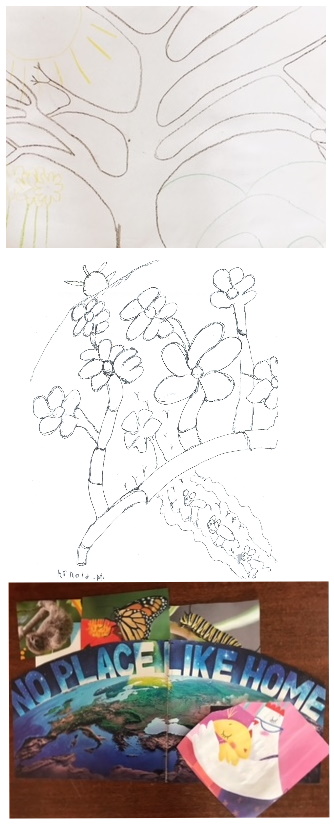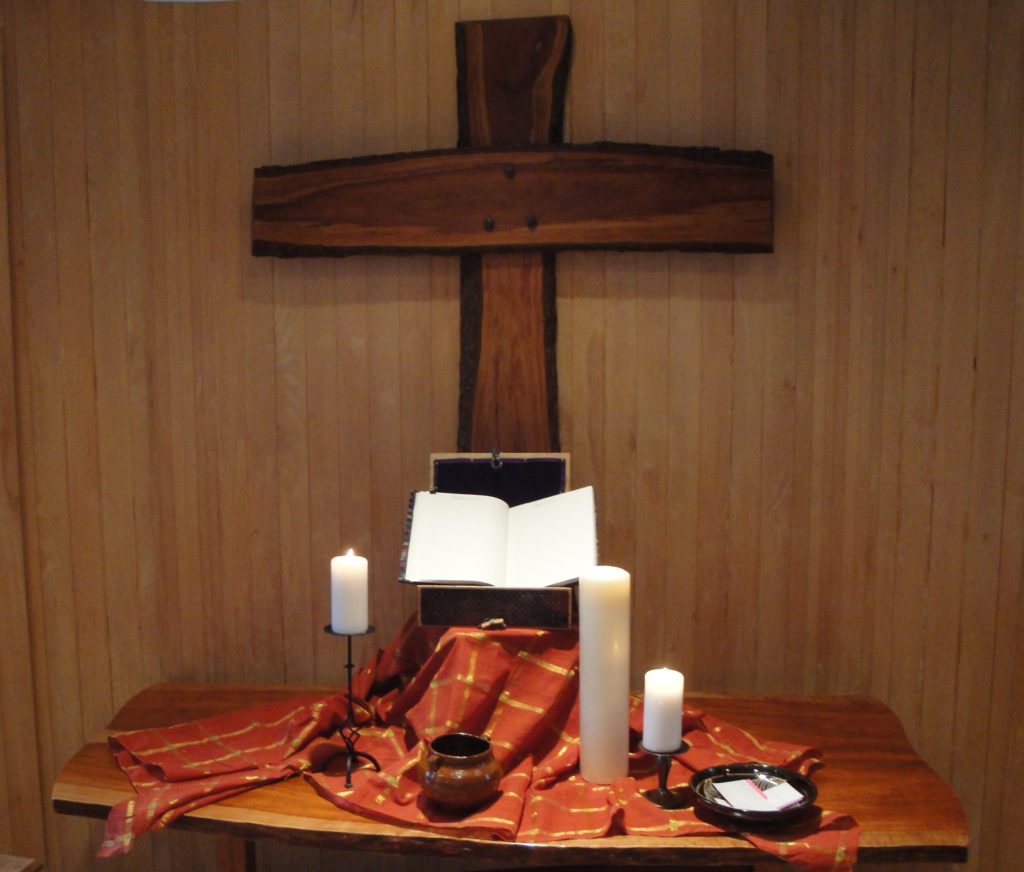Seekers recognizes that any member of the community may be called upon by God to give us the Word, and thus we have an open pulpit with a different preacher each week. Sermons preached at Seekers, as well as sermons preached by Seekers at other churches or events, are posted here, beginning with the most recent.
Click here for an archive of our sermons.
Feel free to use what is helpful from these sermons. We only ask that when substantial portions are abstracted or used in a written work, please credit Seekers Church and the author, and cite the URL.
“The Wisdom of the Widows” by Erica Lloyd

November 7, 2021
Every time I’m going to sign up to preach, I first visit the website of the Revised Common Lectionary and scroll through weeks and weeks of scriptures. I wait for some kind of reaction in myself, be it surprise, compassion, or even revulsion – when something catches my attention, I trust it’s a door worth opening.
And when I got to this week’s scriptures, what caught my attention – in fact all I could see – was the preponderance of widows. There are three in the scriptures you’ve just heard: Ruth and Naomi, and the unnamed widow in the Gospel reading. The alternative readings also include a story about a widow who feeds and cares for Elijah, and a psalm that exhorts us to care for the widow … so, ok, only 5 widows mentioned; but still, given that we read about an average of 0-1 widows on most Sundays, it felt like a lot.
When I sat down to think, ok, what is the Holy Spirit trying to tell me with all of these widows, the first thought I had was: vulnerability. In that last scripture, the Psalm, widows are listed alongside orphans and foreigners as people in need of special care. Those three are so often grouped together in the Bible, it’s almost as if it’s one word: the-widow-the-orphan-the-stranger; together standing as shorthand for all those who are oppressed and neglected by society. The association with vulnerability is so strong that when I took a quick poll of you all, asking the Seekers mailing list for the first word that came to mind when you thought about widows in Biblical times, more than 70% of the responses were on that theme. Here are some of them: Poor. Poverty. Alone. Abandoned. Lonely. Ostracized, Discarded, Disenfranchised. Helpless. Liability. Dependent.
“What We Need is More Saints” by Marjory Bankson

October 31, 2021, Observing All Saints Day
Because today is All Saints Day, I am going to depart a bit from my usual practice of working with the lectionary scriptures and, instead, tell some of the story of Seekers Church through the six people that we will be adding to our Memory Wall this year. The number is larger than usual because we did not add any tiles to the wall last year because of the pandemic.
Many years ago, when Peter and I were shepherding a youth group at the Post Chapel in Ft. Benning, Georgia, somebody gave us an old copy of Faith At Work magazine. In it we found an article by Elizabeth O’Connor titled “What We Need is More Saints.” That is the title of my sermon today.
“Mercy and Sight” by Margreta Silverstone

October 24, 2021
Some weeks (months maybe) ago, I knew Celebration Circle was looking for a preacher for October 24. At that time, I thought the Servant Leadership Workgroup would have something that we could share about our experience and thoughts. I’m sorry but this sermon won’t be about that group’s effort. We are trying to get everyone on the team together for a conversation about the recommendations and scheduling has been a bit of a challenge. We are close to wrapping up, but we aren’t there yet. I apologize that the team lost some momentum over the summer – OK, I lost my momentum to lead the group as I dealt with my own life and loss and grief. But, I had agreed to preach and I try to honor my commitments.
As that plan for what to offer for this sermon went off the rails, what do I talk about instead? I usually do follow the lectionary readings and have worked with these scripture passages and will share some reflections today. Please pray with me. May the words of my mouth and the meditation from my heart be acceptable in your sight, oh my Rock and Redeemer. Amen.
“Thank God We are All in This Together” by Deborah Sokolove

October 17, 2021
On the first Sunday of this Recommitment Season, Marjory challenged us to think of these six weeks as a time for reflection on the commitments in each of our lives, and especially our commitments here at Seekers. It is all of our answers, she reminded us, that will ultimately shape our life together.
Since then, several preachers have confessed to their own failings and shortcomings as a way to illuminate how our commitments, and how we do or do not live up to them, shape our understanding of God, of our individual selves, and our life in community.
“The One Thing Lacking” by Ken Burton

October 10, 2021
Today, the Twentieth Sunday after Pentecost for the larger Church and the fifth and next to last Sunday in Seekers Recommitment Season, offers what is for me a particularly rich group of readings in the Revised Common Lectionary. We heard peter read Job’s passionate cry of abandonment and despair. That was followed by the author of Hebrews portrayal of Jesus as able to “sympathize with our weakness,” whatever it may be and however embarrassed we might be about it. Then there is Psalm 22, which we did not read today. It builds on the passage from Job, offering the words of one who feels totally separated from God, words that Jesus quoted as he was dying on the cross, “My God, my God, why have your forsaken me?” I seriously considered working with this passage, along with the one from Job because I have recently become aware of how very painful this condition, feeling totally separated from God, can be and of how many people suffer from it. I decide not to do that first, because, widespread though it is, it is not really my story and, more important, because I felt drawn to the Gospel passage, Mark 10:17-31.
I’m going to focus only on verses 17-25 of the tenth chapter of Mark, the story that is commonly referred to as that of “The Rich Young Ruler”. The Inclusive Bible, translated by Priests for Equality and from which Judy just read, provides a slightly different emphasis, using gender neutral terms to refer to the inquirer and omitting any reference to this person being a “ruler”. This slight shift makes it easier for some of us, or at least for me, to identify with the inquirer. Like them, I have done a decent job of obeying the Ten Commandments for most of my life, and I have sometimes wondered what more is needed for me to be a true follower of Jesus, what we now call a faithful Christian. Jesus is aware of his inquirer’s affluence. This was particularly important in a society that was strictly divided between the very few rich and the many poor, with no sign of what we today call a middle class, and makes what Jesus asks his inquirer to do is, therefore, even more startling and radical: “Go and sell what you have and give it to those in need; you will then have treasure in heaven. After that, come and follow me.”